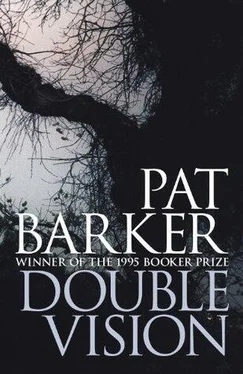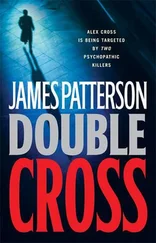‘Since when?’ Justine demanded.
‘Since now.’
‘Why now?’
‘Why not now?’
‘C’mon, Adam, eat up,’ Stephen said.
Adam was clutching his stomach. ‘I’ve got tummy ache.’
‘He does look very white,’ Stephen said.
‘He’s like this every Monday.’
Stephen sat down beside him. ‘Adam, why don’t you want to go to school?’
A shrug.
‘There must be a reason.’
‘Everybody thinks I’m weird.’
‘Now why do you think they think that?’
‘Because I am weird.’
Stephen was left wondering whether insight was really such a good thing. ‘Is there anything else you’d like to eat?’
An exaggerated wet-dog shake of the head.
Justine cleared his plate away without comment. ‘Mum and Dad’ll be here when you get back, think of that.’
Adam trailed after her to the car and climbed — slow-motion — into the back seat.
‘Fasten your seat belt, Adam,’ Justine said.
‘I can’t. It hurts my tummy.’
‘The car won’t start till you fasten the belt.’
A bit of an empty threat, that, Stephen thought, since Adam didn’t want the car to start.
‘Adam,’ he said, bending into the car. ‘If you go to school without making a fuss I’ll take you to fly Archie this Friday after school. How’s that?’
Justine mouthed at him over the roof of the car. ‘I can’t believe you did that.’
‘What?’
‘Bribed him.’
‘Promise?’ Adam called from the back seat.
‘Cross my heart and hope to die.’ He caught Justine’s eye as she got into the driver’s seat. ‘I’m allowed to be irresponsible. I’m only an uncle.’
She smiled. ‘Are you staying here?’
‘No, I thought I’d go back to the cottage and get some work done. What about you?’
‘I’ve got some shopping to do for Beth.’
‘Right, then, see you later.’
It was a matter-of-fact leave-taking, he thought, as he went back into the farmhouse. They might have been married for years.
Quickly, he tidied up the spare bedroom, put the sheets into the laundry basket, did a quick check to make sure he hadn’t left any personal belongings behind and then let himself out of the farmhouse and walked quickly down the lane to the cottage. Inside, it smelled cold and musty, even after an absence of only three nights. He lit the fire, switched on the computer and tried to work.
On Friday he’d broken off in the middle of a discussion about the bombardment of Baghdad in 1991 — the first war to appear on TV screens as a kind of son et lumière display, the first where the bombardment of enemy forces acquired the bloodless precision of a video game. He’d found it disconcerting at the time, and still did. What happens to public opinion in democracies — traditionally reluctant to wage war — when the human cost of battle is invisible? Of course there was nothing new in strict wartime censorship: it had been imposed in both world wars. But, in the first, nothing could hide the arrival of the telegrams nor, in the second, the explosion of bombs. What had been new about Baghdad and later Belgrade was the combination of censorship with massive, one-sided aerial bombardment so that allied casualties were minimal or non-existent and ‘collateral damage’ couldn’t be shown. These were wars designed to ensure that fear and pain never came home.
But he was finding it difficult to get started. Walk. Walk first. A walk would freshen him up. He decided to take his usual route to the top of the hill, though it was a long walk, longer than he really had time for. At first he tried to jog, the grass he ran through flashing fire as his trainers shook off drops of dew. The sky a clear, translucent blue, and far away on the horizon a plane with the sunlight glinting on its wings had left twin vapour trails behind it, spreading out, thinning, fading to nothingness, though, whether from distance or some trick of the landscape, no sound reached him.
He turned to look back at the cottage and the farmhouse far below. Very small and square, they looked, like Monopoly houses. A white van had pulled into the farmyard — visible from here, though it couldn’t be seen from the lane — and two men were carrying something out of the back door. A television set. He wondered for one brain-dead moment whether Beth had arranged for it to be collected and forgotten to tell him, but how had they got in? No, it was a burglary. And then he saw Justine’s little red Metro travelling along the lane. He prayed for it to stop outside the cottage — it was possible she’d call in for a coffee before taking the shopping up to the farmhouse — but no, she drove straight past without slackening speed, and pulled up outside the farmhouse, which to her would look normal. There’d be nothing to see from the lane. He hadn’t remembered to set the burglar alarm, so there’d be no flashing or ringing. He saw her get out and lean for a moment on the car roof, looking up at the hill. She was looking straight at him. He waved his arms and yelled, ‘Justine!’, but she couldn’t hear him, any more than he’d heard the car’s engine.
He started to run, hurling himself headlong down the hill, tripping over tussocks, catching his feet, and knowing all the time that, even if he ran till his heart and lungs burst, he still wouldn’t get there in time.
Justine leant on the car roof, feeling the metal warm under her bare arms and looked up at the hill and the twin vapour trails from a plane dispersing in the blue sky. Then she heaved the carrier bags out from the back seat and set off up the path.
The daffodils were at their peak, though Beth, who for some reason disapproved of yellow flowers, had restricted them to a single clump by the door. You’re vulgar, you are , she told them as she reached for her key. You should be silver-grey or white . And then, rejoicing in the unsubtlety of daffodils, she carried her bags along to the kitchen and dumped them on the table. Coffee, before she unpacked. Looking out of the window, she saw that the vapour trails had almost disappeared.
Then a scurry of footsteps, a blow between her shoulder blades and an arm coiled round her neck. Stephen, she tried to say. There was a second when she actually believed this was Stephen, not because it was the kind of thing he would do, but because the other explanation was unthinkable. DON’T LOOK, YOU FUCKING STUPID CUNT. The words burst on her ear in a spray of spit. Fingers poked into her eyes. A hand pressed hard into her nose and mouth. Can’t breathe. She threw herself back against him, trying to take him by surprise. He grunted and started hitting her, big flat-handed blows, not like a man or even a woman, more like a toddler batting something away, trying to make it not there . Now that her mouth was free, she drew in breath with a screech and expelled it in a scream. DON’T TURN ROUND. I’LL KILL YOU, YOU FUCKING STUPID COW. Frustrated, he began banging her head against a cupboard, cutting her forehead and scalp on the sharp edge. She felt a gush of blood down her face and neck. Huge red splashes appeared on her white T-shirt, dropped like rain on to her arms and hands. Plenty more where that came from. The meaningless thought formed and hung suspended in the darkness. Another roar of rage from him — he was angry with her for being hurt. She focused on him so intently she anticipated his every reaction. He had become the world. She was no longer afraid, or not in the way she’d previously understood fear. Her whole being had shrunk to a single diamond-hard point of determination to live. He thrust her forward against the sink till it cut into her stomach. The pain steadied her. She made a rumbling noise behind the hand, trying to tell him she couldn’t breathe. DON’T LOOK AT ME. SHUT UP. DON’T TURN ROUND. He banged her against the sink with every word, his anger feeding off her fear. She went limp, pretending to faint, then, judging his height from the direction of his voice, drove her right elbow into his stomach. A grunt of pain. Then he swung her round and she found herself staring into two pale blue eyes thickly fringed with lashes that were almost white. He hit her, hard, and the middle of her face exploded in pain. There was just time to think, He’s going to kill me, and then she was fainting, crumpling to the floor. She was aware of being dragged into the living room, the carpet leaving burn marks on her back where her T-shirt had ridden up. Two figures now, two voices, but the new one was careful to stay out of sight. They picked her up and threw her on to the sofa, and then she must have blacked out again, but not completely. She was aware of them talking, trying to solve the problem. She’d seen one of them. She could describe him. They couldn’t solve it just by running away. She went on playing dead. Even with her eyes closed she knew exactly where they were, as if some part of her mind had split off and was watching what happened from somewhere else in the room. She could see herself lying on the sofa, a hand over her face, snuffling blood and mucus.
Читать дальше












